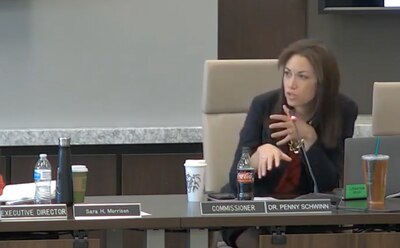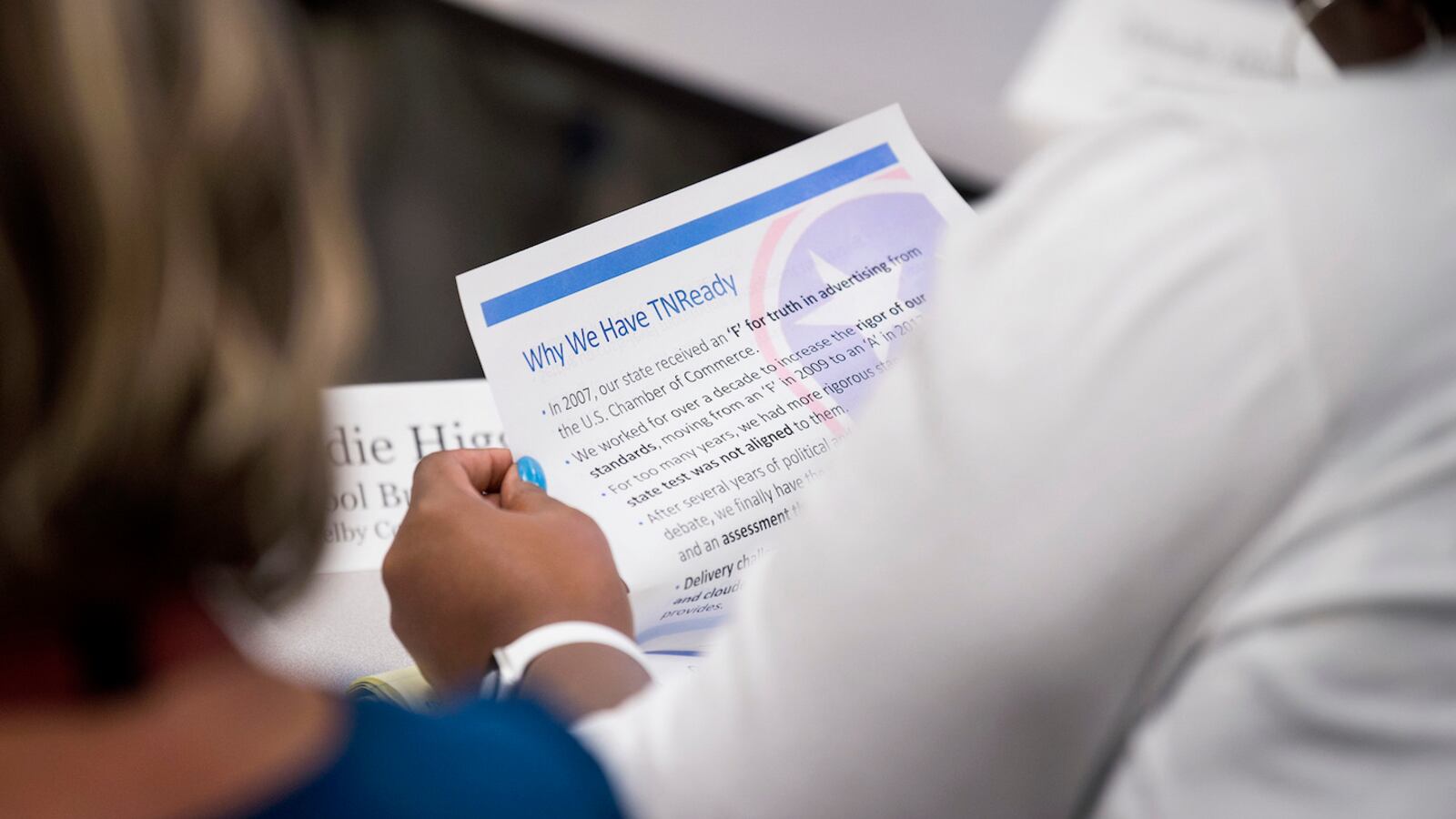Tennessee will leave it up to the legislature to decide whether to scrap state testing this spring as the new coronavirus spreads, while local school leaders will continue to decide whether to close schools to try to contain the respiratory illness.
For now, TNReady testing is on for grades 3-11. It’s scheduled to start as soon as April 13, though school districts have some leeway to decide exactly when.
The state’s education game plan for dealing with the pandemic was presented Friday by Commissioner Penny Schwinn in a letter to state legislators and a conference call with district leaders.
“We are learning; we are adapting as we go,” she told superintendents.
In one week, Tennessee has confirmed 26 cases of COVID-19 out of its population of 6 million people. Those cases are in eight of the state’s 95 counties, with the vast majority in Nashville and neighboring Williamson County.
Gov. Bill Lee has said that school or business shutdowns or event cancelations are judgment calls that should be left up to local officials and leaders in consultation with health officials. He declared a state of emergency on Thursday as Tennessee made plans to shore up medical resources in anticipation of more cases.
The state education department planned to release specific guidance on school closings later Friday. That local approach is being “constantly reevaluated,” said Gillum Ferguson, the governor’s press secretary.
Ten states, including Kentucky and Virginia, have shuttered their K-12 schools statewide, amounting to one of the most dramatic upheavals to American schooling in a century.
The Centers for Disease Control and Prevention released revised guidance on Friday suggesting that early short- to medium-term closures haven’t been shown to slow the progression of COVID-19 in a community. Longer closures — eight to 20 weeks — might retard the virus’ community spread, it said. But modeling shows that other recommended measures like handwashing and isolating patients at home could have a greater effect, the federal agency advised.
The U.S. Department of Education also released guidance Thursday saying that states might be able to skip the required tests for closed schools this year.
But Schwinn said the department does not have the authority to pause any testing for TNReady, the annual assessment used to determine how well students are learning and to hold students, teachers, schools, and districts accountable for the results.
“Assessment and accountability are planned for this year, and there is no change to those plans,” she wrote lawmakers. “Any change would need to be at the direction of the legislature, as a matter of state law, including a request to investigate waivers from the federal government.”
In 2016, then-Commissioner Candice McQueen suspended spring testing after the failed online rollout of the new TNReady assessment. Two years later, when widespread technical glitches marred another year of computerized testing, the legislature stepped in and passed several emergency laws weakening how the scores could be used for accountability purposes.
Legislative leaders did not immediately respond Friday when asked if the General Assembly would consider intervening.
Some educators worry that students will be at a disadvantage on TNReady if they’ve missed many classes due to the coronavirus and school closings.
“The achievement gap in standardized testing is already large between black and brown babies to their counterparts,” Memphis educator Timothy Moore wrote on Facebook. “This will not help close it at all.”
Shelby County Schools Superintendent Joris Ray announced Thursday that Tennessee’s largest district is shutting down until March 30 in Memphis, followed by similar decisions by the state’s fourth largest school system in Chattanooga, as well as the state-run Achievement School District. Other districts, including Nashville, Knox County, and Williamson County, already had canceled classes and planned to reopen on March 23 following spring break. Rutherford County Schools, the state’s fifth largest district, joined the list of COVID-related closings on Friday.
Schwinn told superintendents that the focus now is on keeping students healthy and fed amid the disruptions. “We all know that many of our students get their breakfast and their lunch through schools,” she said, promising recommendations for food distribution options such as drive-through or home delivery.

Other guidance will focus on academic resources that districts can tap should closings be extended or expanded.
The latest federal guidance makes it harder for districts to offer instruction remotely. Schools must make remote instruction accessible to students with disabilities — something advocates say will be difficult to do quickly and for students with a wide range of special needs. In addition, access to digital devices or the internet is limited or unavailable for many students, especially in impoverished communities.
“The department will provide open-source resource links to districts,” Schwinn wrote, citing “free, online programs, the use of existing district materials, and materials that can be printed and mailed to students.”
While children appear to make up a smaller percentage of the documented cases of COVID-19, children have tested positive for the virus that causes it, according to health authorities.
Here’s what we know about children, infection rates, and COVID19
The virus spreads between people in close contact and through coughs and sneezes. The best way to prevent illness is by washing hands often and avoiding those who are sick.
Here’s where to find the latest guidance from the Centers for Disease Control and Prevention and the U.S. Department of Education, as well as Tennessee updates from the departments of education and health.

